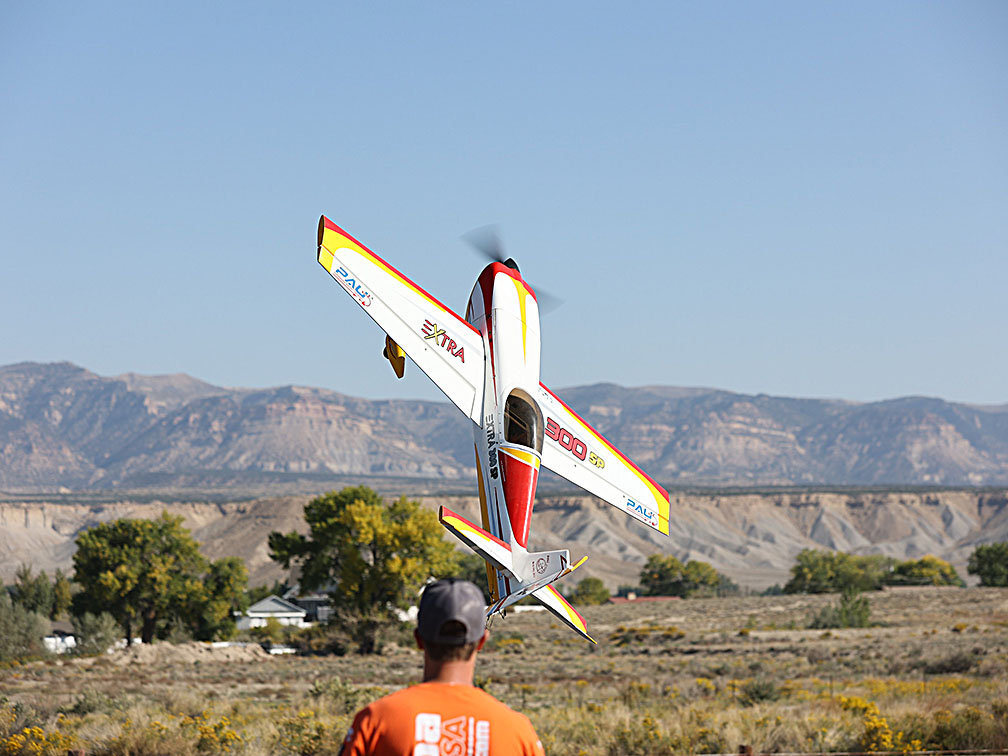Aviation soars at USU Eastern

Carbon County’s mountain ranges and
strong winds kick up from all directions to
often challenge the most experienced pilots.
That didn’t stop young aviators from six
colleges and universities in the Rocky Mountain
West from flying into Carbon County Regional
Airport/Buck Davis Field in Price last month
for the National Intercollegiate Flight Associate
Region I Flight Team competition.
Joining Utah State University were the
United States Air Force Academy in Colorado
Springs, Colorado; Metropolitan State University
in Denver; Rocky Mountain College in
Billings, Montana; Aims Community College
in Greely, Colorado; and Utah Valley University
in Provo, which joined the week-long event after
an eight-year hiatus.
USU’s flight team placed third and will
receive and invitation to compete in the NIFA
national competition at Ohio State University
beginning May 9, 2022. The United States
Air Force Academy placed first, followed by
Metropolitan State University.
Carbon County was the ideal venue. The
airport has no air traffic control tower that
might create an obstacle and an empty ramp
and ample space for parked aircraft. Access
to classrooms gives space for written tests and
instructions. It offers a unique set of challenges
for the student pilots because of unfamiliar
runways, the potential for high winds and its
proximity to the mountains.
“I’m a fairly inexperienced pilot and
I haven’t been to a ton of places,” said Jordan
Burkett, captain of the USU student flight team.
She said, “Coming out here was definitely different
and took some adapting. There’s some
nervousness about randomly switching runways
and not knowing what to do with the winds. But
you trust your skills and your practice, and it
generally ends up okay.”
The competition included nine judged
events: four flying, and five on the ground. The
flying events included two types of landings:
a short field landing and a power off landing.
Other flying events tested the pilots’ precision
and flight planning, and a message drop where
weights are dropped at a target from low-flying
planes.
While they are not the most popular, the
ground events test the pilots’ precision, planning
and knowledge. Preflight asks students to locate
over 30 discrepancies that make an aircraft
unworthy of flight. In the computer accuracy
test, students use an E6B flight computer to
solve flight planning problems. In the aircraft
identification test, students identify aircraft
from photographs. A navigation test assesses
the students’ ability to read charts, flight plans,
and distribute weight and balance. The ground
trainer/simulator test evaluates how closely
students follow an established flight path in
the least amount of time.
The flying events were Burkett’s favorite
— and least favorite. “They are the most
anxiety-inducing, but also the most rewarding,”
she said. “I’m prouder of my flying than anything
else at the end of the day.”
John Boranian and his U.S. Air Force
Academy teammates hope to become Air Force
pilots after graduation. This was his first NIFA
competition due to COVID-19 restrictions and
he says competing has been a tremendous opportunity
for his future career.
“It’s really amazing to see how formal
competition goes and to see how practice,
sometimes three years of it, has paid off,” Boranian
said. “It’s a wonderful combination of
aviation, community, and competition. If you
like to compete and be the best at what you do,
there’s nowhere better to be.”
“The flying has been a blast,” said Utah
Valley team captain Abigail Bowcut, a senior,
who is establishing a team of younger students
to continue the flying team in the future. “I’ve
felt the best about navigation and short field
landing. We’ve been very grateful to get a lot
of helpful information. It’s been fun flying away
from Provo and learning about other planes.”
Students found it a challenge to maintain
their schoolwork during the week of grueling
competition. “It’s not easy to do, learning everything
we need to learn while being in Price,
Utah,” Boranian said.
But they said it was worth the sacrifice
because this was their major competition of
the year and offered them unique flying opportunities.
“We get to do things here that most of our
friends will never even see in their entire pilot
career because they’re going to go from their
training in Billings straight to the airlines,” said
Justin Garcia of Rocky Mountain University.
Andreas “Baron” Wesemann, Director of
the USU Professional Pilot Program, served
as the organizer and host for the competition.
Two years ago, the aviation program set roots
at USU Eastern, and this year, the Unmanned
Aerial Systems (drone) program started. USU
Eastern will host the NIFA Regional I competition
for a third straight year in 2022.
“The full aviation program will hopefully
be here at USU Eastern shortly, as we continue
to expand and grow,” Wesemann said.
He says everyone involved went above and
beyond. Students and faculty from the competing
universities commented that the competition
was a fantastic experience. Wesemann says,
“We’re grateful for the support of our community,
especially USU Eastern, Carbon County
Airport personnel, and County Commissioner
Casey Hoops.”




